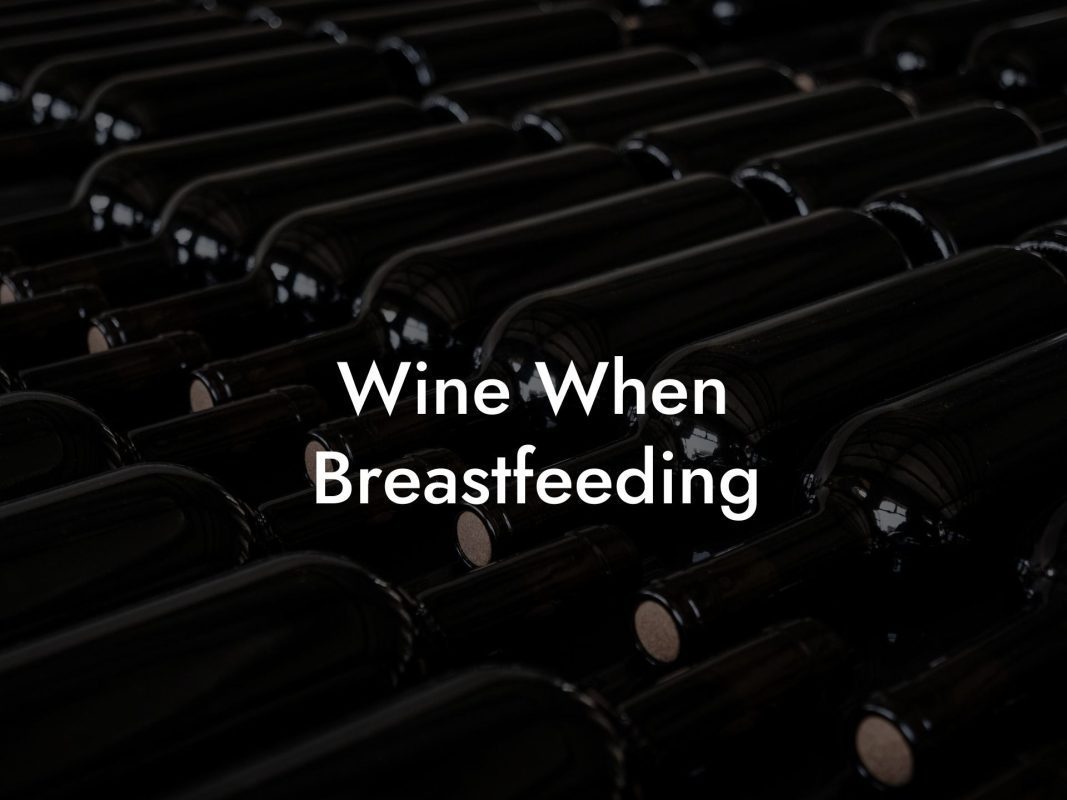Are you a wine enthusiast who has experienced the occasional headache after enjoying a glass or two? It's not just you – many people report headaches after drinking wine, and there's a reason for that. In this article, we're going to discuss why wine can sometimes cause headaches, explore potential triggers, and offer some tips on how you can still enjoy wine without fear of that unpleasant post-drinking headache. So, uncork your curiosity, and let's get started!
Why Does Wine Give Me A Headache Table of Contents
What Causes Wine Headaches?
There are a few reasons why wine might trigger headaches, but the most common culprits are the following:
1. Histamines and Tyramine
Wine, particularly red wine, contains high levels of histamines and tyramine. These substances can cause blood vessels to dilate, leading to headaches in some people. Some individuals might be more sensitive to histamines than others, and therefore more prone to experiencing headaches after indulging in a glass of wine.
Do You Want to Win a Free Bottle of Wine?
Don't miss out on the opportunity to win a free bottle of wine every week.
Enter our weekly prize draw today!
2. Sulfites
Sulfites are chemicals used in wine production as a preservative and to prevent oxidation. While they're generally safe for most people, some individuals may be sensitive to sulfites, particularly those with asthma. A small percentage of these people can experience headaches, among other symptoms, after drinking wine containing sulfites.
3. Alcohol
Alcohol is a vasodilator, meaning it expands blood vessels. This can cause an increase in blood flow to the brain, potentially leading to headaches. Alcohol also dehydrates the body, which can exacerbate headaches and make them feel worse.
4. Tannins
Tannins are natural substances found in the skins, seeds, and stems of grapes used in winemaking. They give wine its astringency and can also contribute to its bitter taste. Some people may be sensitive to tannins, resulting in headaches after drinking wine.
How to Prevent Wine Headaches
While wine headaches may be common, they don't have to put a damper on your love for vino. Try these suggestions to minimize the risk of headaches while still enjoying your favorite wines:
- Choose Low-Histamine and Low-Tannin Wines: If you're sensitive to histamines or tannins, opt for wines lower in these substances (such as white wines). Consult wine guides or speak with a knowledgeable staff member at your local wine shop for recommendations.
- Hydrate: Drinking water before, during, and after consuming wine can help counteract the dehydrating effects of alcohol, which may decrease the likelihood of a headache.
- Eat Before and While Drinking: Consuming food along with wine can help slow down the absorption of alcohol into your bloodstream, potentially easing the onset of a headache.
- Moderate Your Drinking: It may seem obvious, but simply consuming less wine can reduce your chances of developing a headache. Stick to the recommended guidelines for moderate alcohol consumption to lessen the likelihood of an alcohol-induced headache.
- Avoid Cheap Wines: It's not a hard-and-fast rule, but some inexpensive wines might contain higher levels of sulfites. Opting for higher-quality wines may reduce your exposure to these preservatives and lower the chances of a headache.
Why Does Wine Give Me A Headache Example:
Imagine you're at a gathering, and you want to enjoy some wine without the dreaded headache that often follows. Here's what you can do:
1. Opt for a glass of white wine, which typically has lower histamines and tannins.
2. Make sure to drink plenty of water – aim for a glass of water for each glass of wine you consume.
3. Enjoy some appetizers or a meal to help slow alcohol absorption.
4. Limit yourself to one or two glasses of wine, respecting your personal limits and tolerance.
5. When selecting a wine to bring to the event, invest in a higher-quality bottle to reduce the likelihood of sulfite sensitivities.
Now that you have a better understanding of what might be causing your wine headaches and how to prevent them, you can approach your next wine-tasting or social gathering with confidence. The world of wine should be an enjoyable and headache-free experience, and with these tips and tricks, you're one step closer to savoring every sip. Don't forget to share this article with fellow wine lovers – they'll thank you for it – and explore the other informative guides here at Black Wine Club. Cheers to a future of delightful (and headache-free) wine-drinking!
Do You Want to Win a Free Bottle of Wine?
Don't miss out on the opportunity to win a free bottle of wine every week.
Enter our weekly prize draw today!












